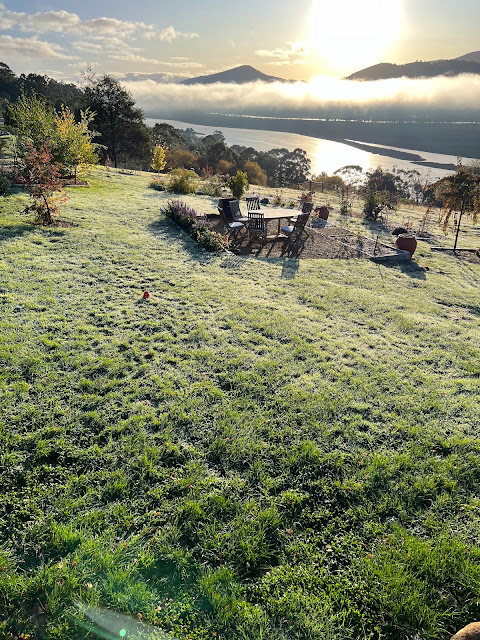Salus populi suprema lex esto …
Marcus Tullius Cicero (106 B.C. – 43 B.C.) was a Roman statesman and philosopher who is regarded as one of the greatest orators in history. His writing and his speeches continue to be studied and admired for their eloquence, clarity and insight. As a schoolboy I was tormented by the task of translating his prosecution of Gaius Verres, the corrupt governor of Sicily. But the current phrase is from his three-volume work on the nature of law, “De Legibus” and translates as “Let the welfare of the people be the highest law.”
This phrase passed through my mind repeatedly last week as I set about reducing our stock of felled wattle tree trunks to firewood. The first and most perilous step is to cut the trunks into rounds of 400mm length (to fit the woodburning oven) with a chainsaw. A chainsaw is a terrifying instrument, and I am relatively inexperienced in its use, despite having attended a course on its operation and maintenance before leaving Brisbane. All went well until I disobeyed a fundamental rule, namely that if the bar of the chainsaw gets pinched in the wood, turn the machine off immediately and free it manually by reducing the pinch using a wedge or similar implement. On one particular cut I felt the beginning of a pinch and incorrectly tried to withdraw the saw. This action had the effect of pulling the chain off the bar while the machine was still operating. Luckily for me no damage was done either to me or to the chainsaw but the sensation of the chain coming off at speed and leaping back towards me was not really in the spirit of Cicero’s exhortation. To be on the safe side, I took the machine in to the local chainsaw dealer to have it checked out and all seemed to be in working order, once everything was put back together. Chastened, I returned to my task with much circumspection and renewed incantation of Cicero.
The second and far more satisfying step in the firewood process is to split the rounds with our new super log-splitter. This is a real pleasure, particularly having split many rounds by hand for this years stockpile. There is something wonderfully therapeutic about seeing a large round being split into split logs in the blink of an eye. There is even no need to recite Cicero.
I am conducting two little experiments concerning firewood. The first of these is simply to see how well silver wattle burns. The folklore is that wattle burns too hot and too quickly and is therefore an inferior choice for firewood. From a sustainability perspective, however, burning wattle makes a lot of sense because it is classified as a weed, it grows quickly and has a short lifespan (wattle tends to crack and fall in high winds). I am therefore hoping that the wood turns out to be okay for use in the log burner.
The second experiment is about how best to season the wood before burning. Casual observation suggests that the vast majority of firewood tends to be seasoned by leaving the split logs in the open air for a number of years before burning. I am interested to see if a year of resting in a dry space such as a shed is sufficient to season the wood satisfactorily. I now have two stores, one neatly stacked in the shed, the other piled haphazardly in the top paddock. I plan to start using these logs in the autumn of 2024 so it should be clear which set of logs performs better. Watch this space ...
Despite the excellent wallaby-proof fencing that has recently been erected around the garden and top paddock, my regular evening perambulations with Pepper and Knut revealed that one or two pademelons were still penetrating the perimeter. We have now seemingly cured the problem by attaching chicken-wire skirts to our gates so that small creatures cannot crawl under them. The nightly stroll around the paddocks is enlivened by Pepper going absolutely nuts trying to chase the torchlight, while Knut pads alongside me in a lugubrious fashion. By the end of the walk, Pepper is absolutely shattered panting like a steam train and ready to drop, while Knut is unfazed looking around for something more to eat. There is a nice symmetry about doing a late night tour of the garden and top paddock and then letting the chickens out first thing in the morning: it gives a nice rhythm to the day.





Comments
Post a Comment